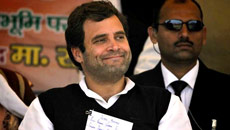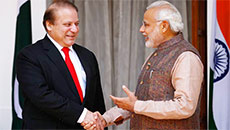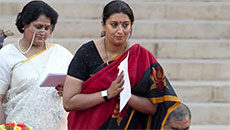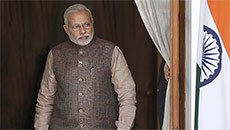A court Friday framed charges against AAP leader Arvind Kejriwal in a defamation case filed against him by BJP leader Nitin Gadkari.
Gadkari, now a union minister, had filed the criminal defamation complaint against Kejriwal, saying he defamed him by including his name in the Aam Aadmi Party's list of "India's most corrupt".
Metropolitan magistrate Gomati Manocha put Kejriwal on trial while framing charges against him under section 499 and 500 of IPC and posted the matter for Aug 2.
The court's order came after Kejriwal refused to withdraw his statement in which he had levelled corruption allegations against Gadkari. Earlier in the day, the court suggested both the leaders bury the hatchet and reach an amicable resolution in the case.
During the hearing, Gadkari told the court that he was ready to resolve the issue if Kejriwal withdraws his statement. However, Kejriwal refused to withdraw his statement and allegations.
The court said that, as despite efforts, no compromise could be effected between the parties, it framed charges against Kejriwal.
It said that after considering the entire material on record, in its opinion, there was sufficient material to establish a prima facie case against Kejriwal under the section dealing with defamation.
Kejriwal did not plead guilty and sought a trial.
Meanwhile the court allowed Kejriwal's application seeking exemption from personal appearance and allowed him to be represented by his lawyer at every court hearing.
The court imposed some conditions while allowing his exemption application including that he shall appear in the court as and when required by the court.
Kejriwal sought exemption saying that being the national convenor of AAP, he was required to meet various delegations, attend numerous conferences and meetings.
He said that "due to his crusade against corruption, a lot of cases have been filed against him and a considerable amount of his time is getting used up in appearing and defending himself in such cases".
Gadkari's counsel opposed his plea.
Kejriwal had earlier been sent to jail after he refused to furnish a personal bond. He, however, later furnished a personal bond on the advice of the Delhi High Court and was released.





